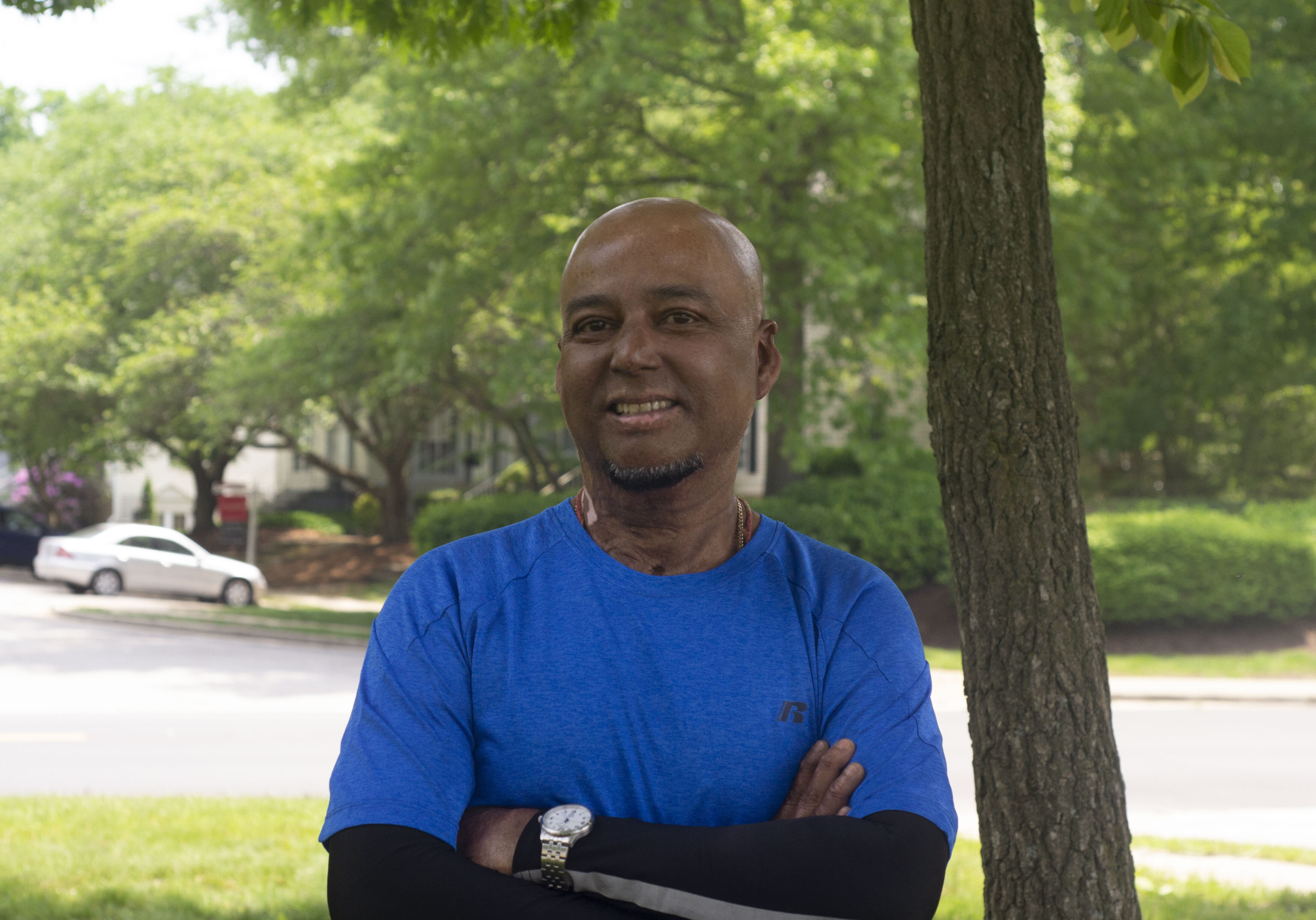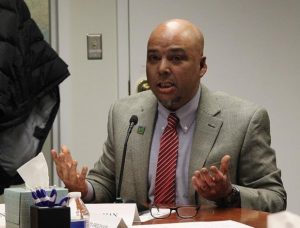Burn survivor begins new life as an advocate


Imran Zaman is a new man. Literally.
After 90 percent of his body was burned in a house fire, he nearly died three times, spent months in a coma, then received extensive tissue donations to rebuild his body.
“I was basically like a newborn,” Imran said. “I couldn’t talk and I couldn’t walk, but I could think.”
The inferno
It happened in 2013. Imran came home from work, made himself a snack and went down into the basement of his Woodbridge home to take a nap, as he usually did. He woke up in the middle of a conflagration.
“The entire basement was on fire. It was like an inferno that you see in the movies,” he said.
Imran ran for the sliding door and after several tries, got it open. That’s the last thing he remembered until he woke up two-and-a-half months later in the ICU.
“It was like an inferno that you see in the movies.”
The nurses later told him that he nearly died three times during the ordeal. And it wasn’t over yet. He spent another month in the hospital before moving to a rehab facility for a month-and-a-half.
During that time, he had 56 surgeries, saving his life and repairing his body with donor tissue and skin grafts.
And then the real work started.
Depression and decline
“When it was time to leave, I didn’t want to come back home,” he said. “I was scared about how I was going to live in that situation.”
Before the fire, Imran had a family but the trauma of the ordeal had been too much and they had broken up. When he left rehab to return home, he was completely alone.
“I can’t do this anymore.”
“Physical therapists came to the house to help me and I had a handyman but that was it,” he said. “I started drinking because I was depressed. The handyman would buy me alcohol and I was drinking like crazy. I was also taking antidepressants and I’d wake up, drink, go to sleep for a little while then wake up and drink and then go to sleep again.”
It went on for a while like that, Imran said. Then one day, he was ready to live again.
“I woke up and said ‘no, I can’t do this anymore,’” he said. “By then, I could walk. I said ‘I’ve got to do this on my own’ so I quit drinking and I stopped taking the antidepressants.”
Looking outward
Instead of drinking, Imran took up helping.
“While I was in the hospital, there was a counseling group called the Burn Group. When I decided to get involved, I started going to the Burn Group and found out that with my experiences, I could contribute. Apparently, I was doing it well and that was the beginning of my helping others.”
“That was the beginning of my helping others.”
Imran started speaking and counseling other burn survivors and he attended the Phoenix Society’s annual Burn Congress. Doctors had asked him to go while he was still in the hospital but at that point, he couldn’t even get dressed by himself. The idea of traveling alone was terrifying. Now though, he thought he was ready.

It was another life-changing experience.
“I saw all of these kids,” he said. “I am 50-plus and look at these kids – they have a long life to lead.
That’s when I said ‘I am fine. I’m not worried about me. I’m worried about these kids.’”
Imran threw himself body and soul into helping others.
In addition to working with burn survivors, he also started advocating for organ donation. Before the fire, he hadn’t been an organ donor but now, it’s one of his major causes.
He said he doesn’t know the identity of the donors who provided life-saving tissue, but he’s grateful to them and he works to honor their memory and convince others to sign up as well.
As a Muslim, he’s in a position to make a big difference.
“In the Muslim community, there are taboos and myths about donation,” he said. “People think the Koran says you can’t donate organs so advocates are trying to do outreach and get all the imams involved.”
“In the Muslim community, there are taboos and myths about donation.”
Imran jumped in to help, not just advocating as a survivor, but also researching the issue to find out where the myths came from and how to counter them.
The bottom line, he said, is that while there was controversy in the past, with modern technology and science, every major Islamic group now supports organ donation.
Sometimes, he said, people are just scared about the idea of organ donation and as a survivor, he can help talk with them about the benefits and change their focus.
Self-care
Changing his own focus was a lot of what helped Imran recover mentally.
“The most important thing in my life is helping others,” he said. “I just love it. It makes me feel that I am giving back. God saved me, my doctors saved me, my wonderful nurses saved me. But now it’s me.” Saving himself, Imran said, means channeling his energy into saving others.
“The most important thing in my life is helping others.”
“I am fine. I don’t have any worries now. I don’t work because my hands are still messed up and my lefts are still messed up. But I can help. I can talk and counsel and advocate. I call myself the dead man walking. If I can do it, anyone can do it. Everything bad that can happen, I went through all of that. Just because I wanted to get back on my feet, I got back on my feet.”
Organ, eye and tissue donation saves and heals countless lives. Sign up to become a donor today.
